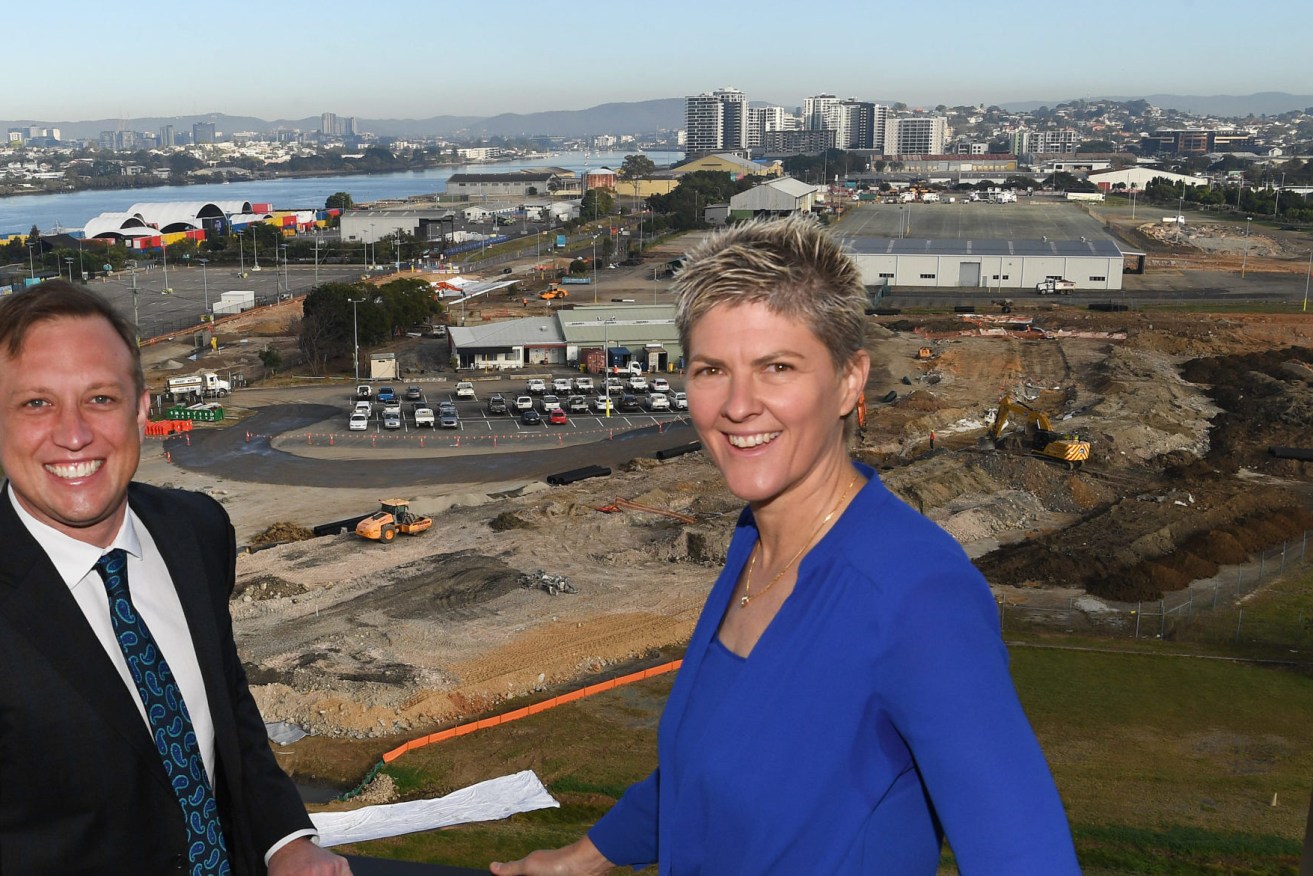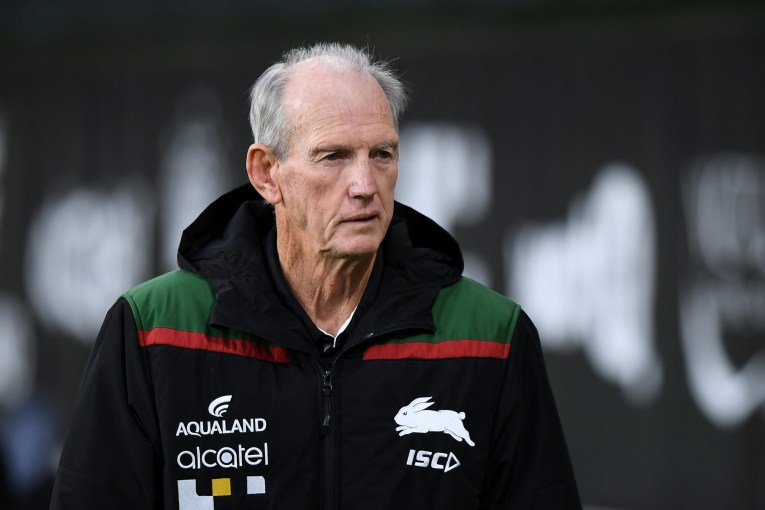Deal or no deal: SEQ’s landmark ‘big projects’ pact falls victim to politics
The Palaszczuk Government has poured cold water on hopes that a landmark agreement with the federal government will drive the delivery of key transport and other public infrastructure to south-east Queensland.


Queensland Deputy Premier Steven Miles (left) and Australian Olympic Gold Medalist Natalie Cook (right) are seen looking over the site of the future Olympic athlete’s village at Northshore Hamilton. (AAP Image/Darren England)
Deputy Premier and Infrastructure Minister Steven Miles says he doubts the so-called SEQ City Deal, meant to help ensure all levels of government work together on transport projects to connect the region, will be the remedy for infrastructure bottlenecks.
This is despite furious lobbying by the region’s mayors over several years to get some form of agreement signed between governments on how best to manage the region’s growth.
Miles told the Infrastructure Association of Queensland’s annual assembly this week that he would like to see an SEQ City Deal finalised but played down the impact it would have.
“We’d be happy to see the deal concluded. I guess I’d temper peoples’ expectations that, without being able to disclose what’s currently in it, it’s unlikely to be the panacea that some people hoped for,” he said.
He admitted the agreement had been “on and off the table repeatedly” with successive federal governments and said he had had several meetings with the responsible federal minister, Paul Fletcher and Brisbane Lord Mayor Adrian Schrinner over the past year to get the deal done.
However, he indicated the agreement had fallen victim to the electoral cycle and instead talked up the potential of the 2032 Olympic Games to drive co-operation on infrastructure delivery between governments.
“I do think whatever governance we put around the 2032 Olympics and Paralympics is much more likely to be the big vision,” he said.
“The great opportunity of the Olympics is less so about the event itself and more about the fact that all three levels of government will have to sign up to an infrastructure plan for 10 years regardless of what happens with elections.
“If you think about it Cross River Rail would have been built three years ago if an election cycle hadn’t changed something that had been agreed by state and federal governments and I think that’s just one example of how locking in a 10 year strategy, regardless of what changes might occur, has huge value not just in the dollars but in the political commitment.”
His comments are likely to disappoint local mayors and business groups who have been vocal in their support for a regional City Deal similar to the seven agreements already forged with other urban centres around Australia, including Townsville.
It has been two and a half years since federal and state ministers signed a “statement of intent” with local mayors to develop a City Deal for SEQ. The signing kicked off speculation that the region could finally be able to deliver major infrastructure projects like fast rail to better cope with its rampant population growth.
But the negotiations leading up to the signing occurred mostly when Malcolm Turnbull – a big fan of the City Deals model – was still prime minister.
Adopted from the United Kingdom, the city deal model is a new way to smooth the investment of public funds into urban infrastructure as well as encourage private sector investment.
A City Deal involves unlocking federal and state government funding for infrastructure while at the same time allowing local government to help decide how that funding can best shape urban growth. It gives more certainty to public infrastructure investment, thereby diving confidence in the private sector to invest.
A spokeswoman for Lord Mayor Adrian Schrinner declined to comment.












